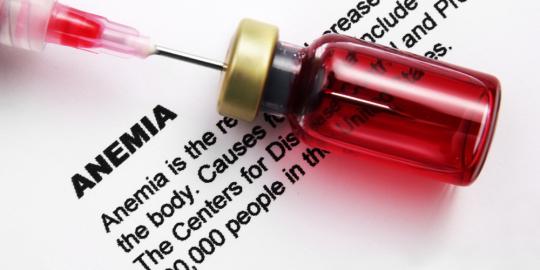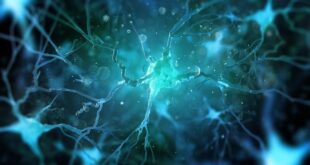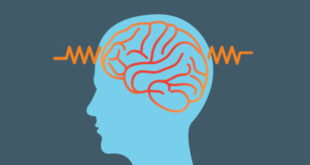Learn all about Anemia Types, Treatment, Causes , Sign and Symptoms!
Anemia is a medical condition in which you do not have sufficient normal and healthy red blood cells to carry enough oxygen to your tissues.Main underlying causes of anemia are low red blood cell(RBC’s) count, production of abnormal red blood cells, low level of hemoglobin, nutritional deficiency or anemia caused by heavy blood loss.
There are many types of anemia with different underlying cause but anemia caused by heavy blood loss is common. Anemia ranges from mild to severe.Anemia is the most common disorder of the blood. Poor diet may result in folic acid and iron deficiency which results in development of anemia caused by iron or folic acid deficiency.Anemia may be temporary or longterm depending upon cause severity of condition.
Symptoms of Anemia
Symptoms of anemia vary from person to person due to different underlying cause.However, some commonly reported symptoms of of anemia are
- Fatigue
- Pale skin
- A fast or irregular heartbeat
- Shortness of breath
- Chest pain
- Dizziness
- Cognitive problems
- Cold hands and feet
- Headache
Types of Anemia
Iron deficiency anemia
Iron deficiency anemia is caused by deficiency of elemental iron in the serum.Iron is necessary element for the synthesis of hemoglobin in the bone marrow. In case of iron deficiency our body does not produce sufficient hemoglobin for red blood cells (RBC’s).The most common causes of iron deficiency anemia are heavy blood loss due to any trauma or injury, an ulcer, menstrual bleeding, cancer and prolonged use of anti-clotting or blood thinning agent s like aspirin or drugs known as non-steroidal anti-inflammatory drugs (NSAIDs).
Vitamin deficiency anemia
Vitamin deficiency anemia is very common in Asian and African countries due to poor and restricted diet that causes growth retardation and anemia. In addition to iron, our body also requires folic acid(vitamin B9) and Cyanocobolmin(vitamin B12) for the development of sufficient red blood cells(RBC’s). A diet deficient in these key nutrients may lead to decreased red blood cell production.
Anemia of chronic disease
Certain diseases are aslo associated with anemia or play important role in development of anemia for example Certain cancer, rheumatoid arthritis, HIV/AIDS, Crohn’s disease and other chronic inflammatory diseases.These diseases can interfere with production of RBC’s leading towards the development of anemia of chronic disease.Kidney failure also can cause anemia.
Aplastic anemia
It is rare type of anemia in which bone marrow’s ability to produce red blood cells is decreased.It is rare type of anemia but can be life threatening.Main causes of aplastic anemia include autoimmune diseases, drug induced bone marrow suppression and some infections.
Hemolytic anemia
Hemolytic anemia refers to destruction of red blood cells.In this type of anemia red blood cells are destroyed faster than bone marrow can replace them. Certain blood diseases and drugs are associated with destruction of RBC’s. Hemolytic anemia can be inherited, or you can develop them later in life.
Sickle cell anemia
It is inherited type of anemia in which sufficient number of red blood cells are produced with abnormal crescent (sickle) like shape.These red blood with abnormal morphology are unable to perform normal physiological functions in the body.Sickle cell anemia should taken seriously because it may be life threatening.
Other anemia
There are several other forms of anemia such as thalassemia and anemia caused by defective hemoglobin.
Causes of Anemia
Anemia occurs when your blood contains insufficient number of red blood cells. This can happen if
- Your body does not produce sufficient red blood cells
- Bleeding or accidental injury causes loss of red blood cells more quickly than they can be replaced
- Your body destroys red blood cells(autoimmune disease)
- Your body produce abnormal red blood cells(Sickle cell anemia)
Treatment of Anemia
Treatments for anemia depend on severity and cause
Administration of iron supplements
Nutritional iron deficiency is common in developing countries.Iron deficiency from nutritional causes is common in pregnant women as compared to postmenopausal women.Mild to moderated anemia is treated with administration of oral iron supplement in form of ferrous fumarate, ferrous gluconate or ferrous sulfate.
Administration of iron supplement may cause stomach discomfort, loss of appetite and darkening of feces.It is believed that vitamin c increases the absorption of free iron in the body.So, taking iron supplement with vitamin c helps in the rapid absorption of iron.In anemia becomes severe due to extreme iron deficiency then parenteral iron therapy is recommended.
Blood transfusion
Anemia caused by heavy blood loss due to some trauma, accidental injury, menstrual bleeding, hemorrhage, ulcers or due to any other underlying disease is mainly treated by blood transfusion.Anemia caused by heavy blood loss should be treated promptly because it may becomes life threatening if left untreated.Before going to bleed make sure that you are free from any blood born disease.
Erythropoiesis stimulating agent
If patient has decrease number of bred blood cells due to impaired synthesis of red blood cells in bone marrow then Erythropoiesis stimulating agent is given to patient through parenteral route.Erythropoiesis-stimulating agent induces the synthesis and proliferation of red blood cells.This type of therapy is mostly used in patients who are receiving chemotherapy, anti-viral drugs or immunosuppressants.
 Health & Care Information
Health & Care Information 


